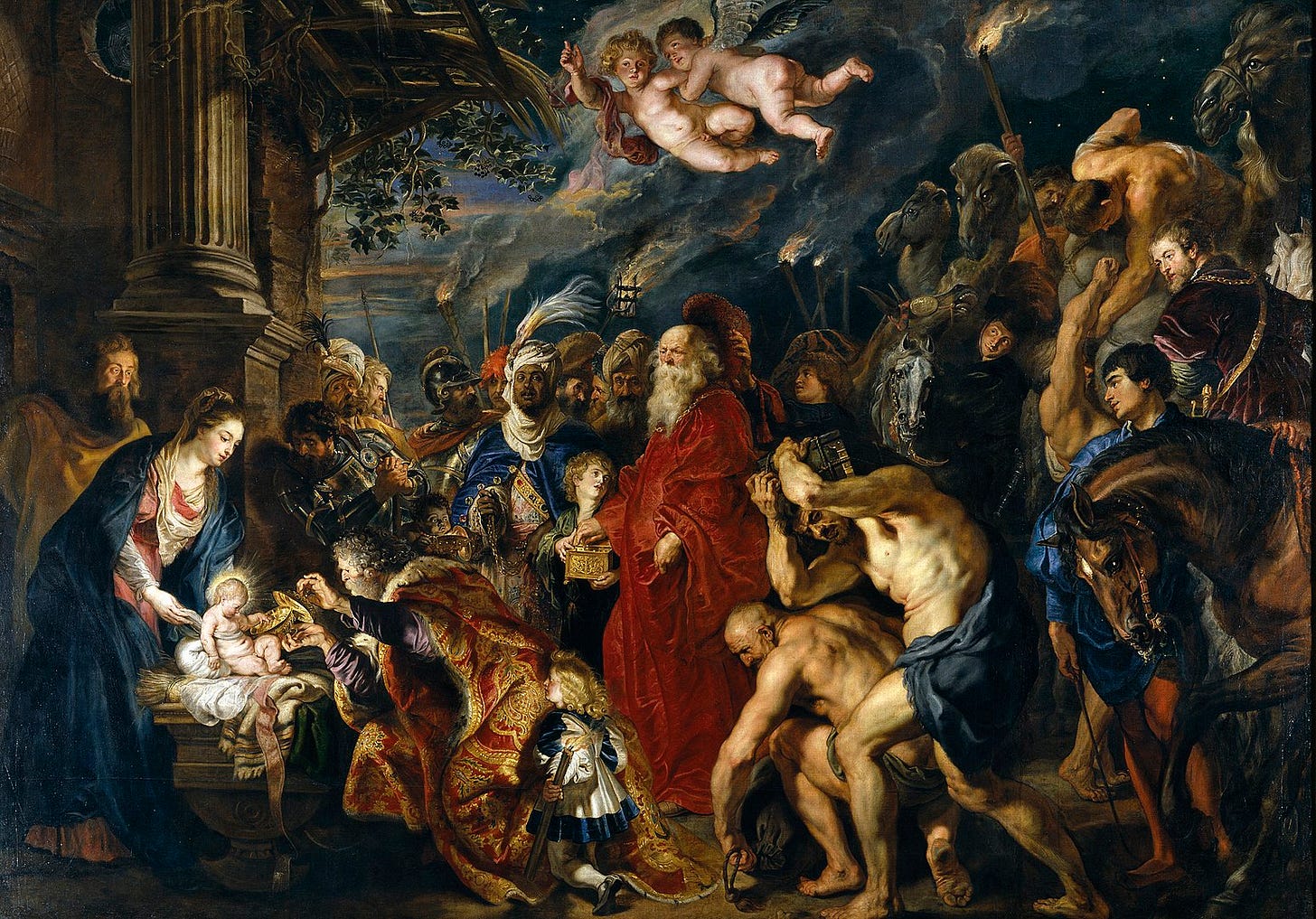
When Jesus Christ was born, “wise men” from the east arrived in Jerusalem. These “Magi” (astronomer-priests) had seen a star that they believed signified the birth of a great king. They had come to honor him and so were asking where they could find this “King of the Jews” (Matthew 2:2 NASB).
However, there lived in Jerusalem a man who already fancied himself king of Judea. Herod “the Great” reigned as a client of the Roman Empire and was keen on keeping it that way. As Thomas Nelson related in The King James Study Bible:
“…because of Herod’s consuming suspicion that someone might usurp his throne, he even executed one of his wives and his three oldest sons.”
Thus Herod found the inquiry of the Magi very vexing, especially in light of past prophecies of a coming Messiah and ruler destined to be born in nearby Bethlehem, where the great king David was also born.
So Herod told the Magi to seek the child king in that town and report back when they found him. He feigned a desire to pay tribute to the Messiah but actually intended to destroy his potential rival.
The Magi then followed the “Star of Bethlehem” to the child’s exact location. There they found Jesus, son of Mary and Joseph. The distinguished men (often themselves called “kings”) bowed down before the Christ Child and presented him with precious gifts. The wise men then headed back east without reporting back to Herod, because God had warned them in a dream about the tyrant’s evil intentions.
But Herod did not relent. He ordered the massacre of all children two-years-old and younger in Bethlehem and along the nearby coasts. But Jesus was already far from reach. His parents had fled with him to Egypt, because God had warned Joseph in a dream. There the Holy Family remained until after Herod’s death.
After growing up Jesus did prove himself to be, not only a king, but king of kings: although not in the manner that Herod feared or the Magi expected.
Jesus turned out to be, not a national potentate, but a leader for all humankind; not an authoritarian, but the ultimate moral authority; not a master of mortal bodies, but a savior of immortal souls. Jesus was meek and mild, yet mightier than any monarch.
Herod “the Great,” for all his desperate and despotic efforts to cling to power, was merely a temporary tyrant. But Jesus, through his death and resurrection, was revealed to be Christ the King, our eternal Lord.




So good, thank you, Dan!